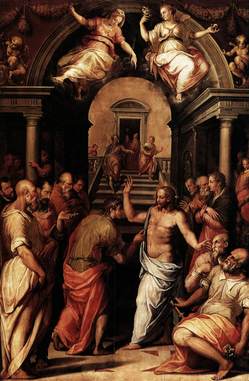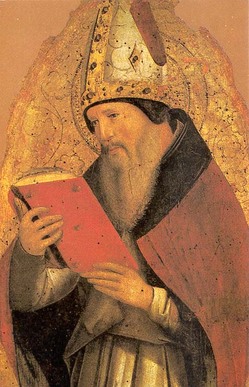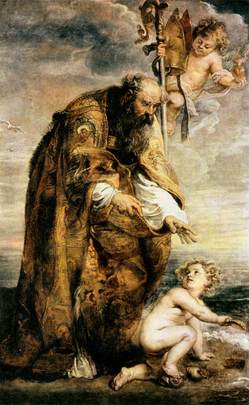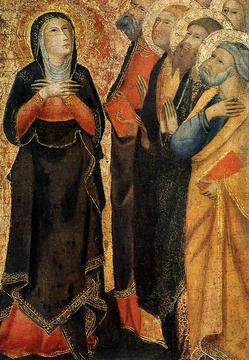The gives to us today in the Office of Readings the following from the Confessions of Saint Augustine of Hippo, whose feast we celebrate today. These are some of the most moving words of the great Augustine! If you have not read the Confessions I urge you to do so; I have always felt thus, so much so that when I taught high school junior theology I had my students read significant sections of the work.
Urged to reflect upon myself, I entered under your guidance
the innermost places of my being; but only because you had become my helper was
I able to do so. I entered, then, and with the vision of my spirit, such as it
was, I saw the incommutable light far above my spiritual ken and transcending
my mind: not this common light which every carnal eye can see, nor any light of
the same order; but greater, as though this common light were shining much more
powerfully, far more brightly, and so extensively as to fill the universe. The
light I saw was not the common light at all, but something different, utterly
different, from all those things. Nor was it higher than my mind in the sense
that oil floats on water or the sky is above the earth; it was exalted because
this very light made me, and I was below it because by it I was made. Anyone who
knows truth knows this light.
O eternal Truth, true Love, and beloved
Eternity, you are my God, and for you I sigh day and night. As I first began to
know you, you lifted me up and showed me that, while that which I might see
exists indeed, I was not yet capable of seeing it. Your rays beamed intensely
on me, beating back my feeble gaze, and I trembled with love and dread. I knew
myself to be far away from you in a region of unlikeness, and I seemed to hear
your voice from on high: “I am the food of the mature: grow, then, and you shall
eat me. You will not change me into yourself like bodily food; but you will be
changed into me”.
Accordingly I looked for a way to gain the strength I needed
to enjoy you, but I did not find it until I embraced the mediator between God
and man, the man Christ Jesus, who is also God, supreme over all things and
blessed for ever. He called out, proclaiming I am the Way and Truth and the
Life, nor had I known him as the food which, though I was not yet strong enough
to eat it, he had mingled with our flesh, for the Word became flesh so that
your Wisdom, through whom you created all things, might become for us the milk
adapted to our infancy.+Late have I loved you, O Beauty ever ancient, ever new,
late have I loved you! You were within me, but I was outside, and it was there
that I searched for you. In my unloveliness I plunged into the lovely things
which you created. You were with me, but I was not with you. Created things
kept me from you; yet if they had not been in you they would not have been at
all. You called, you shouted, and you broke through my deafness. You flashed,
you shone, and you dispelled my blindness. You breathed your fragrance on me; I
drew in breath and now I pant for you. I have tasted you, now I hunger and
thirst for more. You touched me, and I burned for your peace.
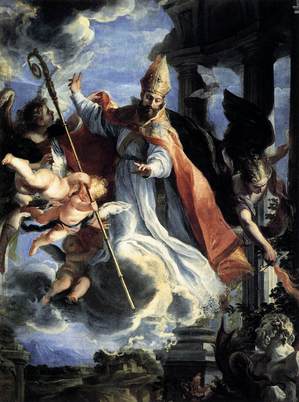
![St Monica Andrea Verrocchio[1].jpg](https://communio.stblogs.org/assets_c/2010/08/ St Monica Andrea Verrocchio[1]-thumb-285x343-7110.jpg)
